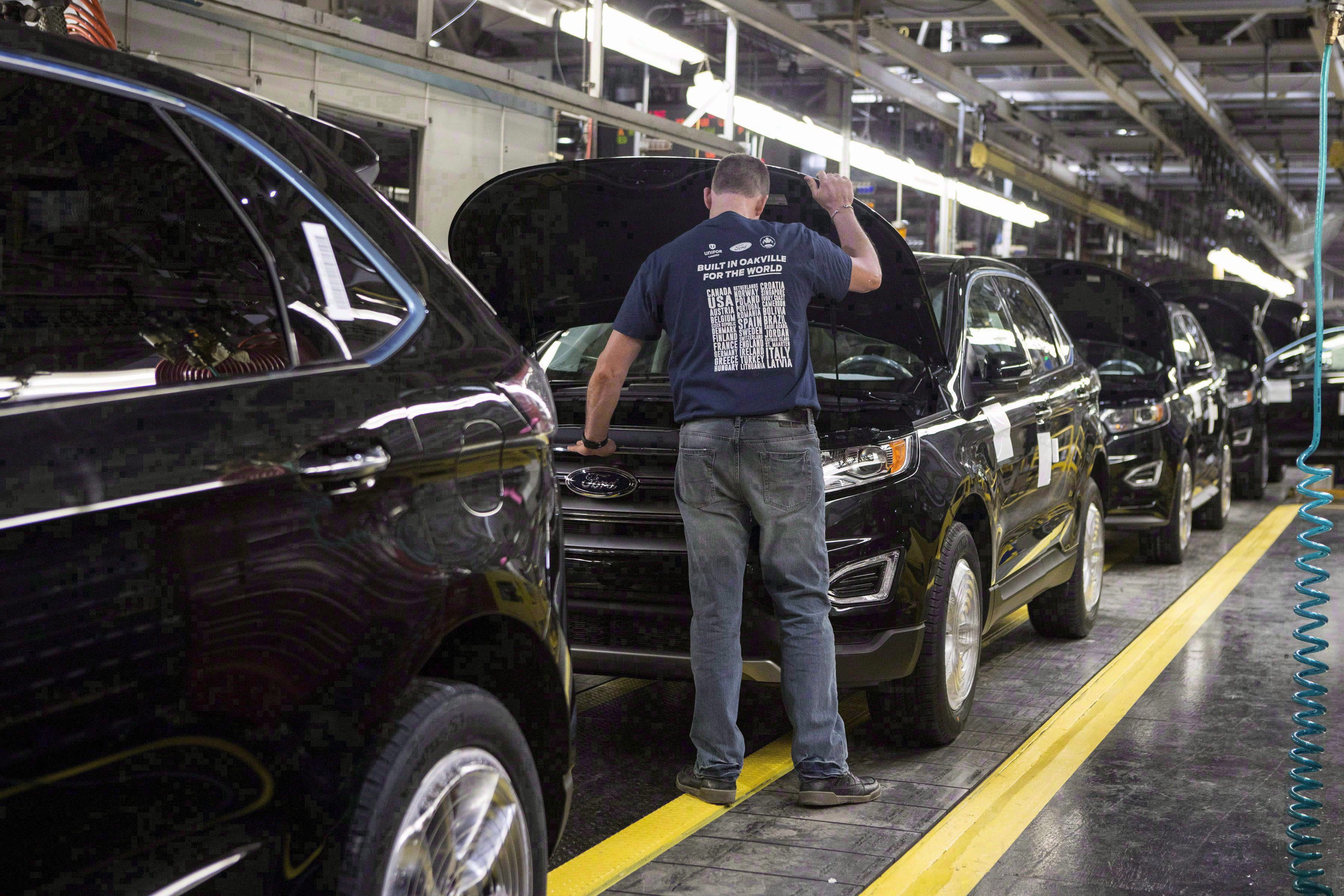NAFTA talks are getting down to the wire and the developments this week kept Canada’s Foreign Affairs Minister, Chrystia Freeland, in Washington, for a fourth day of face to face negotiations.
The North American Free Trade Agreement, signed by Canada, Mexico and the United States, came into being on January 1st, 1994. Now the three countries are attempting an updated version.
Freeland was expected to attend a NATO summit in Brussels, but sent her parliamentary secretary, Omar Algahabra, in her place, in order to make progress on some of the more challenging aspects in the agreement.
The “rules of origin” provisions in the auto sector have proven particularly thorny.
May 1st was the deadline Donald Trump established for Canada and Mexico to have demonstrated progress, and remain exempt from the sweeping steel and aluminium tariffs he imposed on other countries in early March.
“Stronger forces at play”
Freeland is uniquely qualified to be in this position.
“She has really demonstrated a strong command of the file, and I think it’s fair to say her stature has increased in the time since she’s become the minister.” says Professor Ian Lee, of the Ottawa-based Sprott School of Business.

- NAFTA negotiations on the auto sector have been a challenge in this latest round of talks. Ford Edges on a production line at the Ford Assembly Plant in Oakville, Ontario, on February 26, 2015. The U.S. softened another one of its key NAFTA demands, shaving 10 per cent off a request on automobiles amid a flurry of talks aimed at getting a preliminary agreement this spring. (Chris Young/CP)
In her life before politics, Freeland was a business journalist and the author of two books. Most recently, in 2012, ‘Plutocrats: The Rise and Fall of the New Global Super-Rich and the Fall of Everyone Else’.
In it, she credits the 1950 agreement between legendary labour leader Walter Reuther and the Big Three Automakers, for creating the rise of the middle class.
Lee says, beyond the pressure of looming tariffs, the May 1st deadline is essential to comply with some of the “stronger forces at play”.
The upcoming Mexican election on July 1st, may usher in the leadership of left-leaning Andres Manuel Lopez Obrado. He is not a big free-trade supporter, and does not like the pressure in these trade talks, but he has said he will comply with an agreement if one is attained.
Meanwhile, the American Congress will recess for the summer, and when they return in the fall, they will be in full campaign mode for the off-year elections. It is better to get this revised NAFTA voted on before the summer.
“They’ve got to get it on to the Congress’s very busy schedule and so I think that those pressures are coming together to suggest that it’s really critical that it be wrapped up, that the NAFTA negotiations be wrapped up by May the first.” Lee says.
Yesterday Prime Minister Trudeau announced an additional $30 million (Cdn) for the Canada Border Services Agency (CBSA) and Global Affairs Canada for trade enforcement and regulatory changes.
The additional money will help prevent trans shipments of steel through Canada, from other countries in an effort to evade tariffs, as well as “expand the scope of steel and aluminium products that need to be marked with their county of origin”, according to the government news release.
Late this afternoon it was announced that the negotiators will reconvene on May 7th,
(With files from CBC and CP)







For reasons beyond our control, and for an undetermined period of time, our comment section is now closed. However, our social networks remain open to your contributions.